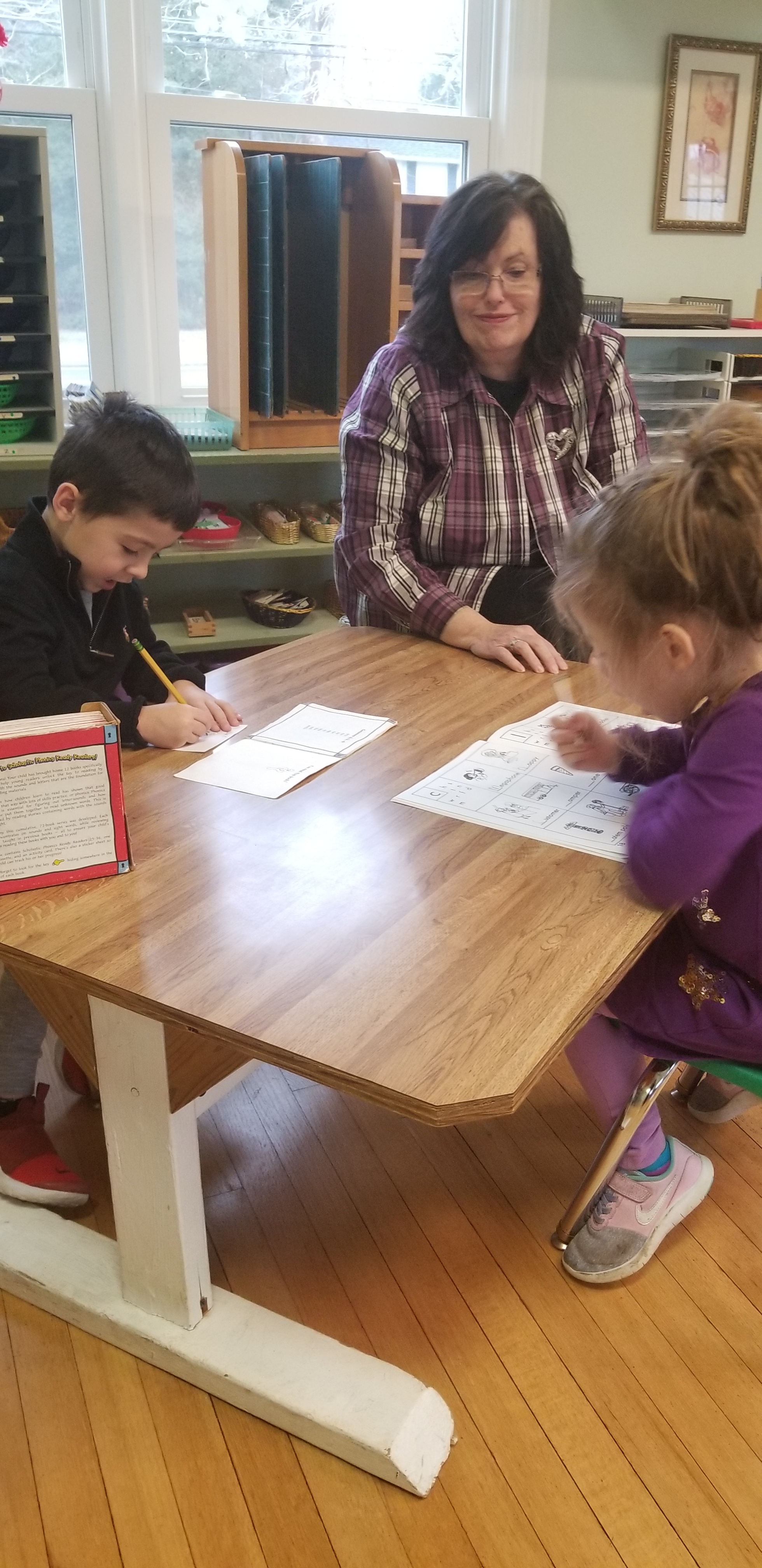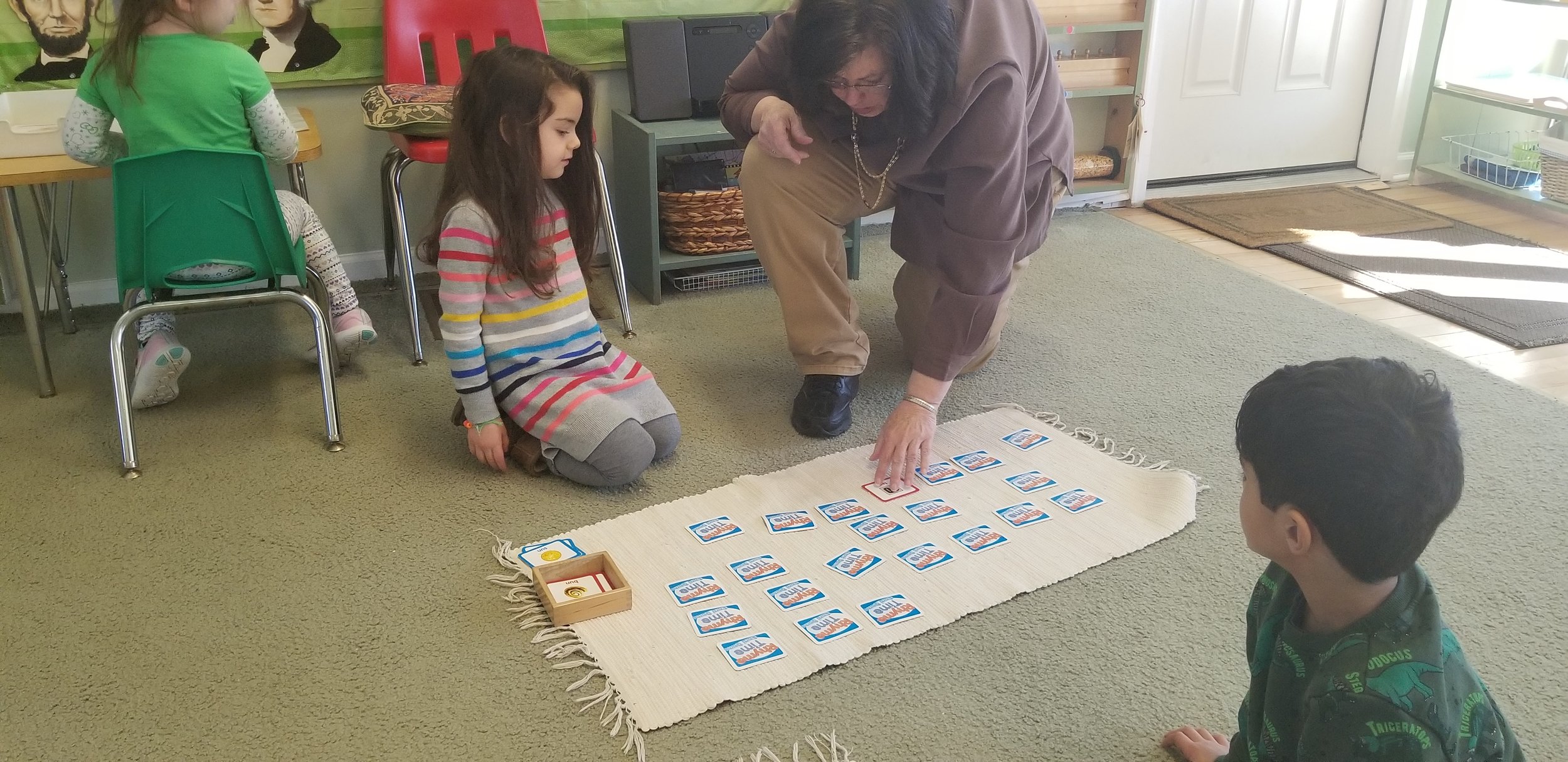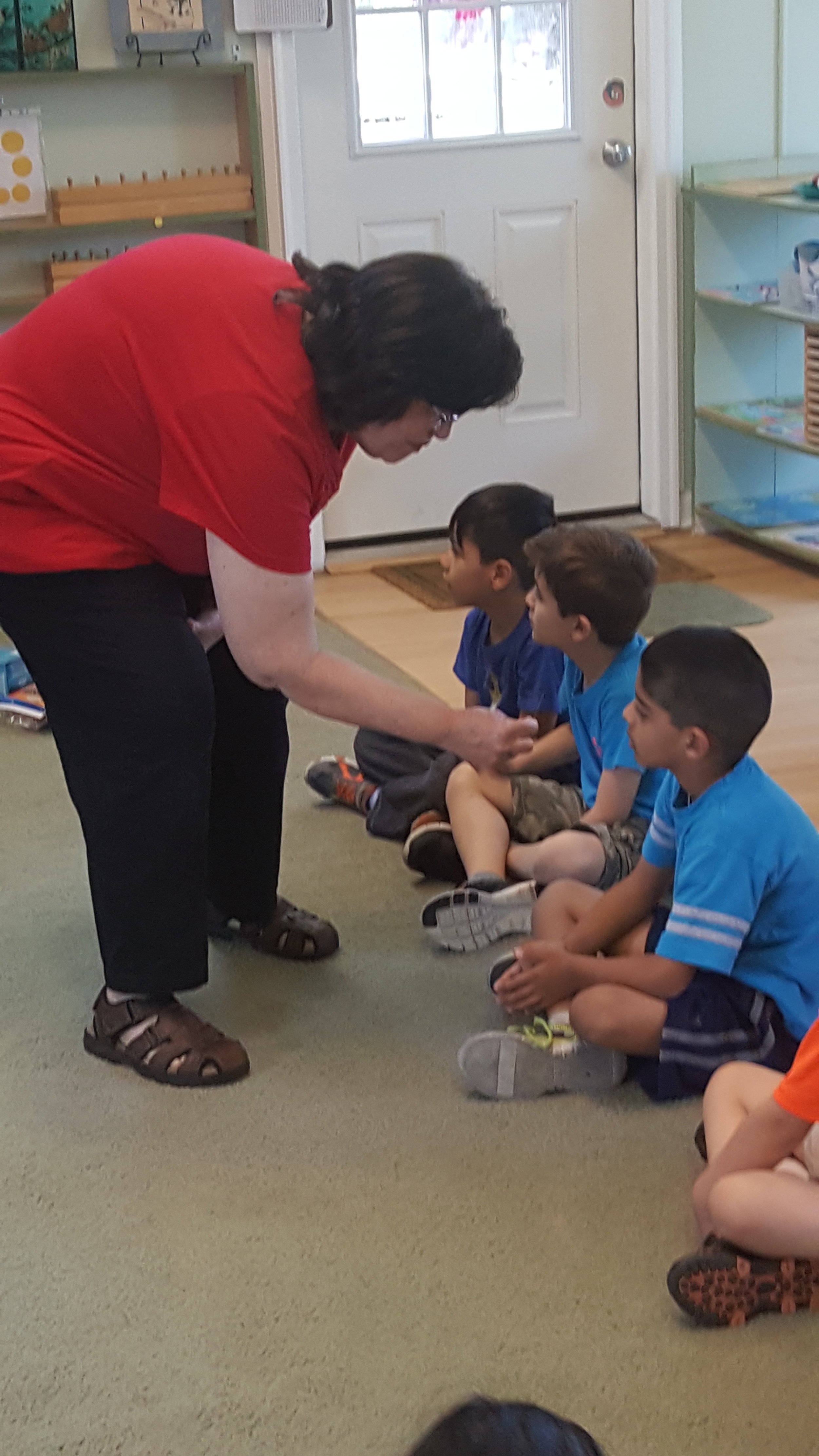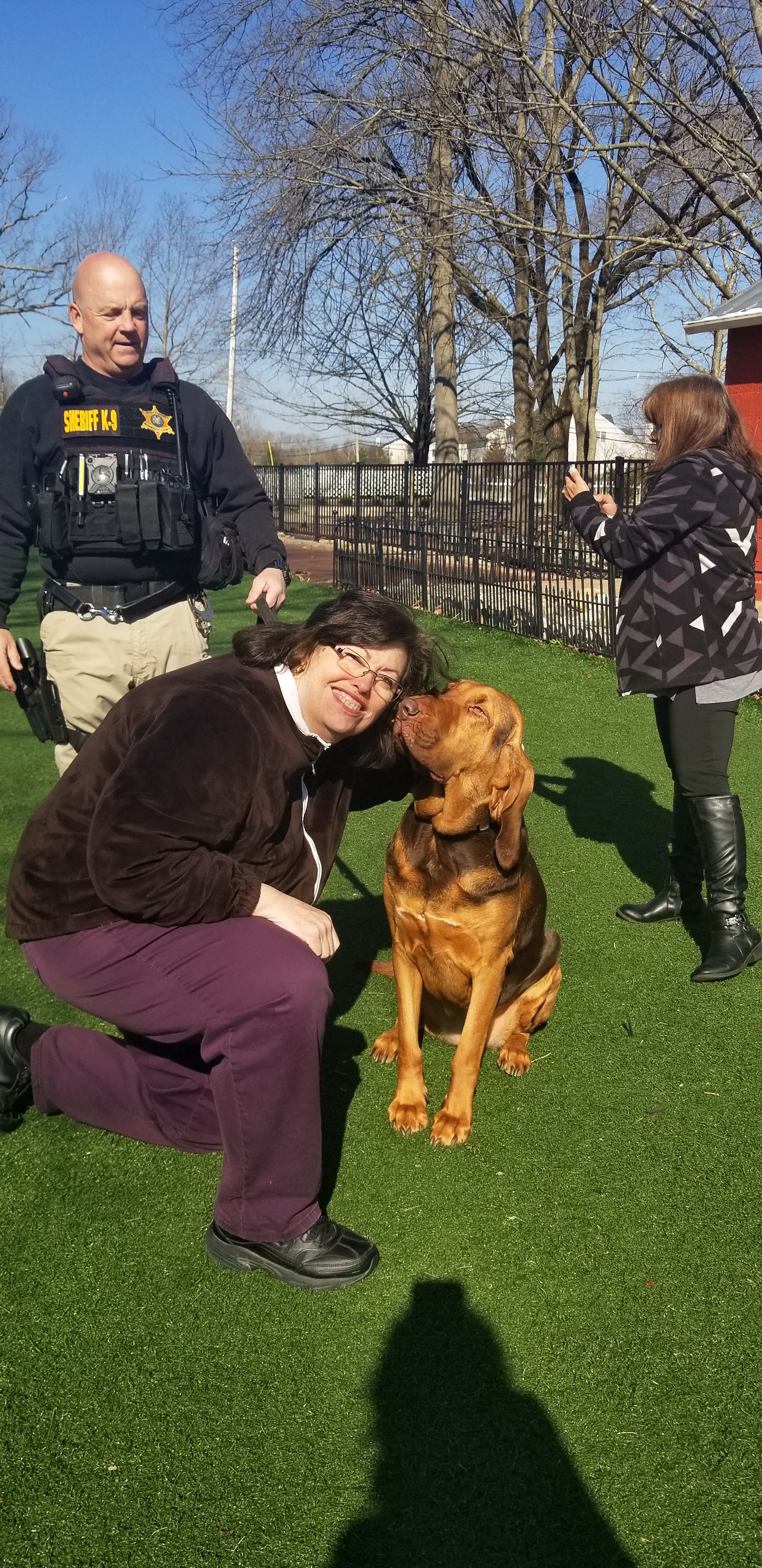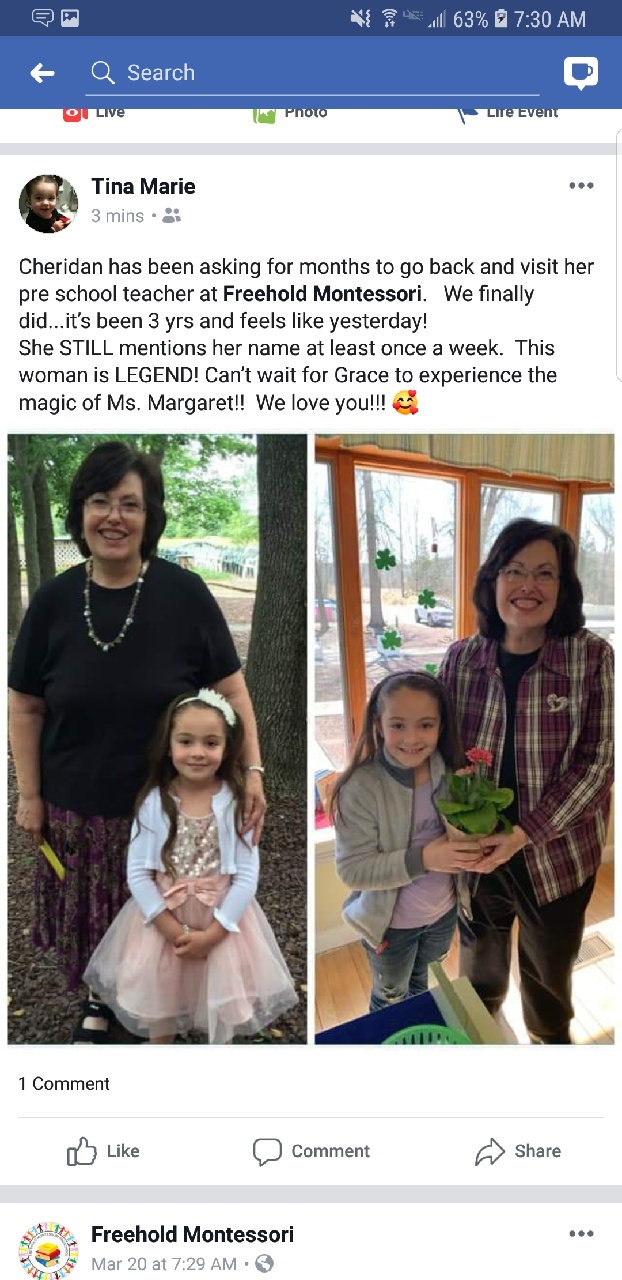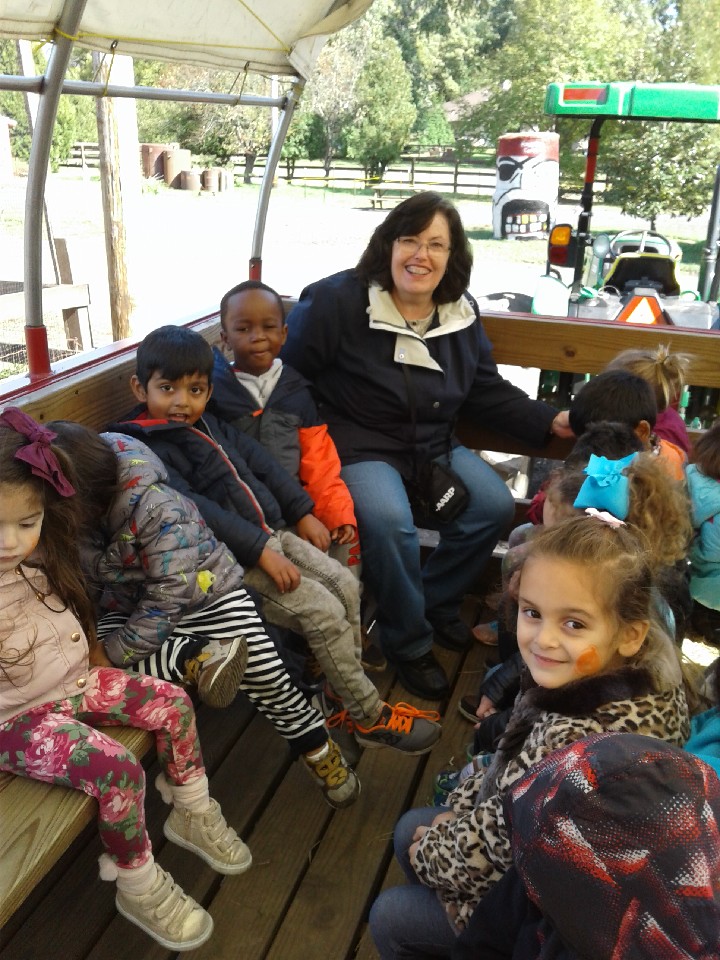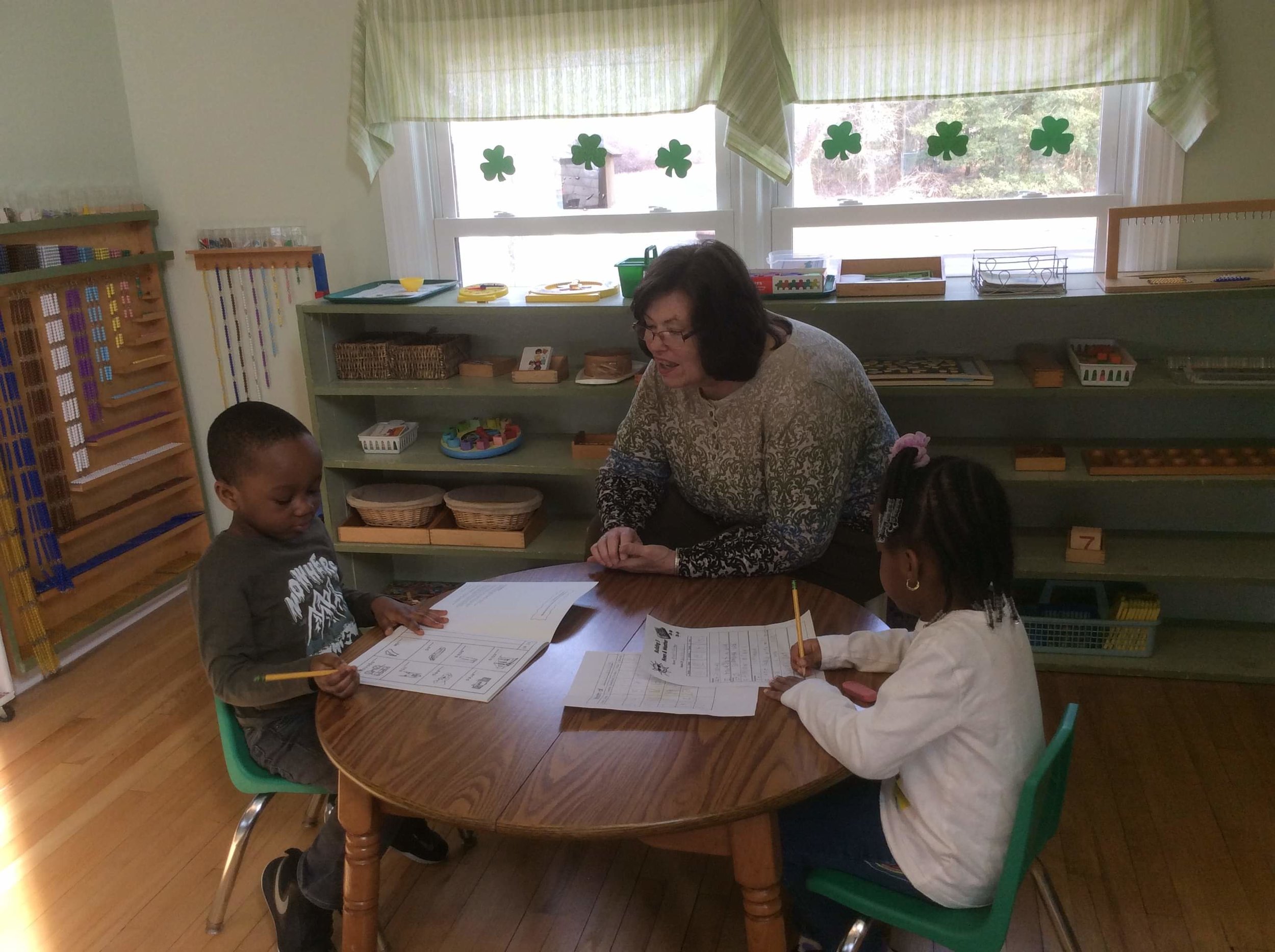Q: Can you tell us about your educational background and how you first became interested in Montessori?
While attending Fairleigh Dickinson University, I followed my interest in human behavior and graduated with a B. A. in Psychology. I continued my studies there, earning a Master's Degree in Child Development. It was during my post-graduate coursework that I first learned about the Montessori Method. It was actually one paragraph in a book that briefly stated the philosophy of children developing at different rates, therefore the environment of a multi-age classroom would allow each child to learn at his/her own pace. It reminded me of the philosophy espoused by the psychologist Jean Piaget that I had studied previously. He believed children passed through stages of development, that they first learn about the world through movement, and later their thinking moves from the concrete to the abstract. Just like Montessori! I became curious and wanted to learn more about the Montessori philosophy since I, too, shared this philosophy. After learning about the Montessori Method of Education I decided to make this my life's work. I went for training at the Meca/New World Montessori Teacher Training Program and received my teaching credential from the American Montessori Society. After teaching at two other Montessori schools, I found my way here to Freehold Montessori, and the rest is history!
Q: What continues to inspire you about Montessori?
Montessori is not a fad, it is not an elite program, and it is not a special needs program. There are many misconceptions about Montessori. For me, at its core, Montessori is based on the concept that the years between ages 0 and 6 are the most important years in the child's development. Their minds are ready to absorb so much new information and if they can be present in a prepared environment that gives them the freedom to explore and learn new concepts on their own, then a foundation for future learning will have been laid. At a time when electronic technology has taken over much of a child's free time, the Montessori emphasis on hands on learning using didactic manipulative materials is more relevant than ever.
Q: What is your favorite area in the classroom and why?
The Sensorial area in the classroom is my favorite because it is the area that is the foundation for future language and math works. Children are overloaded with information from all five of their senses and the prepared environment provides materials that help them learn how to observe and classify this information, looking for similarities and differences. Imagine how that knowledge affects learning to read and write. When a child is used to looking for similarities and differences in shapes in the sensorial area, for example, that translates into looking at the similarities and differences in alphabet letters and numbers. What is the difference between a lowercase "b" and "d"? In math, how can I tell the difference between a "6" and a "9"? The sensorial section helps the child make sense of the world by honing his/her observation skills.
Q: What are you most proud of in your 20 years at Freehold Montessori?
During the past 20 years a lot of children have passed through the classroom doors to our prepared environment. Maria Montessori called her school a "Children's House" and that is how I think of our classroom.......as a second house or home for the children. I'm proud that so many families over the years have chosen to send all of their children (sometimes as many as three siblings from one family) as well as cousins and their siblings to Freehold Montessori. These long term relationships create a real partnership based on trust between families, teacher, and school and can only have positive results. Being able to still have contact with former students as they come by to pick up their younger siblings feels like being a member of an extended family. Watching the older siblings blossom and thrive and remembering their time in the classroom is a reward not every preschool teacher is lucky enough to receive.


